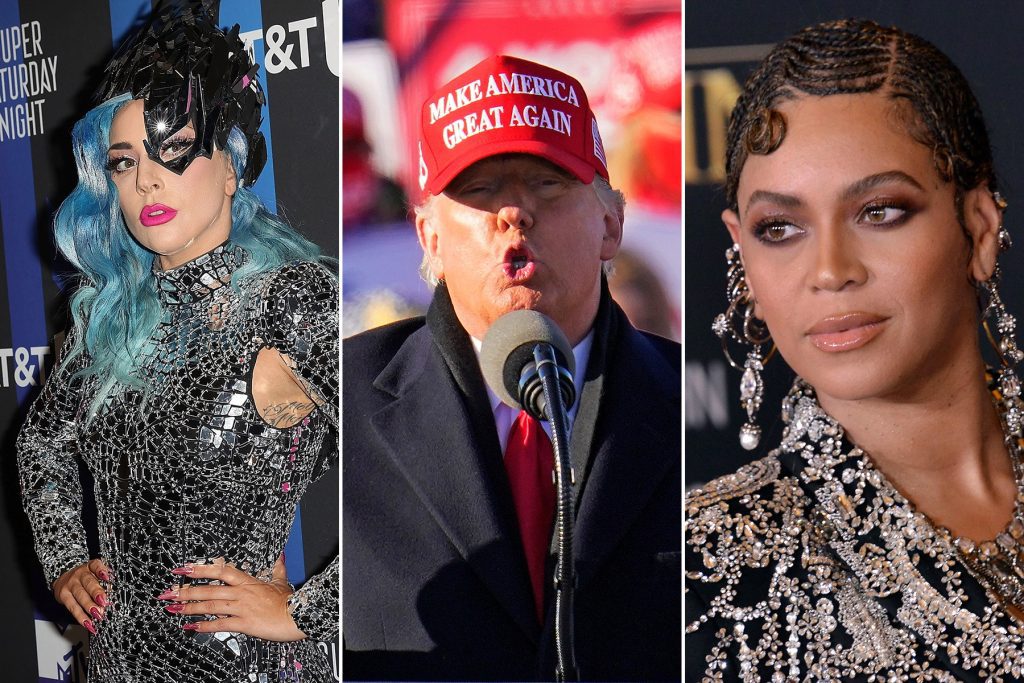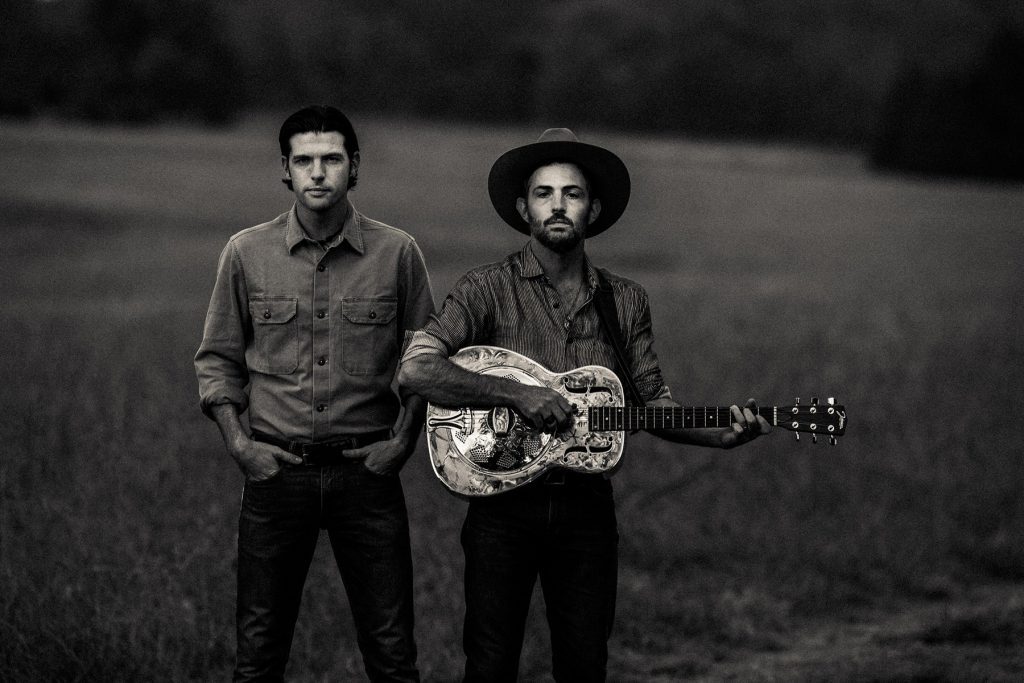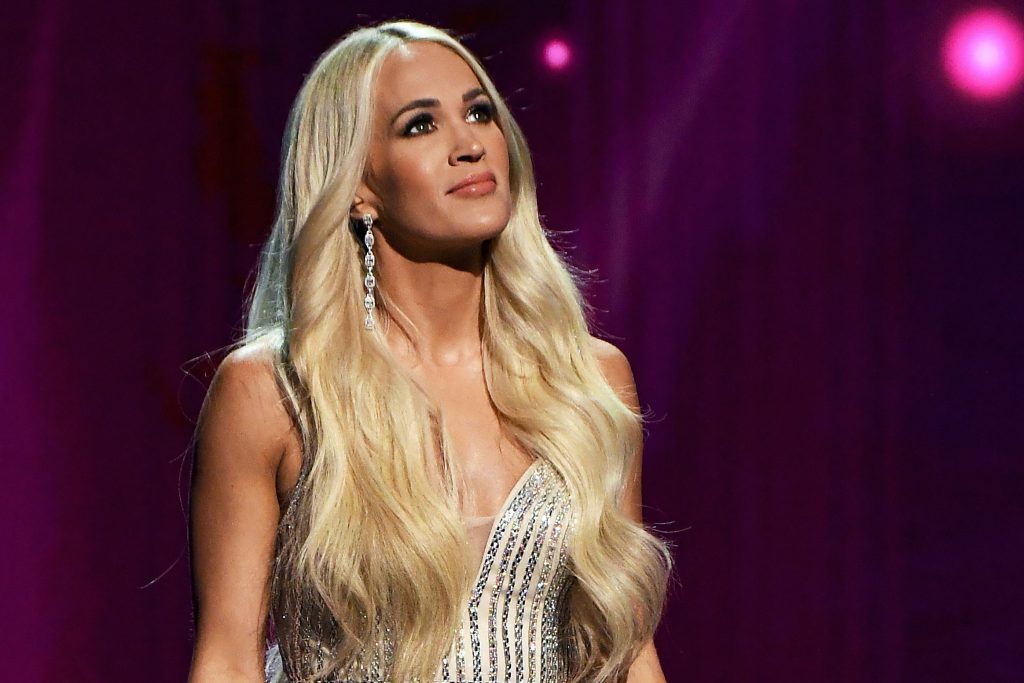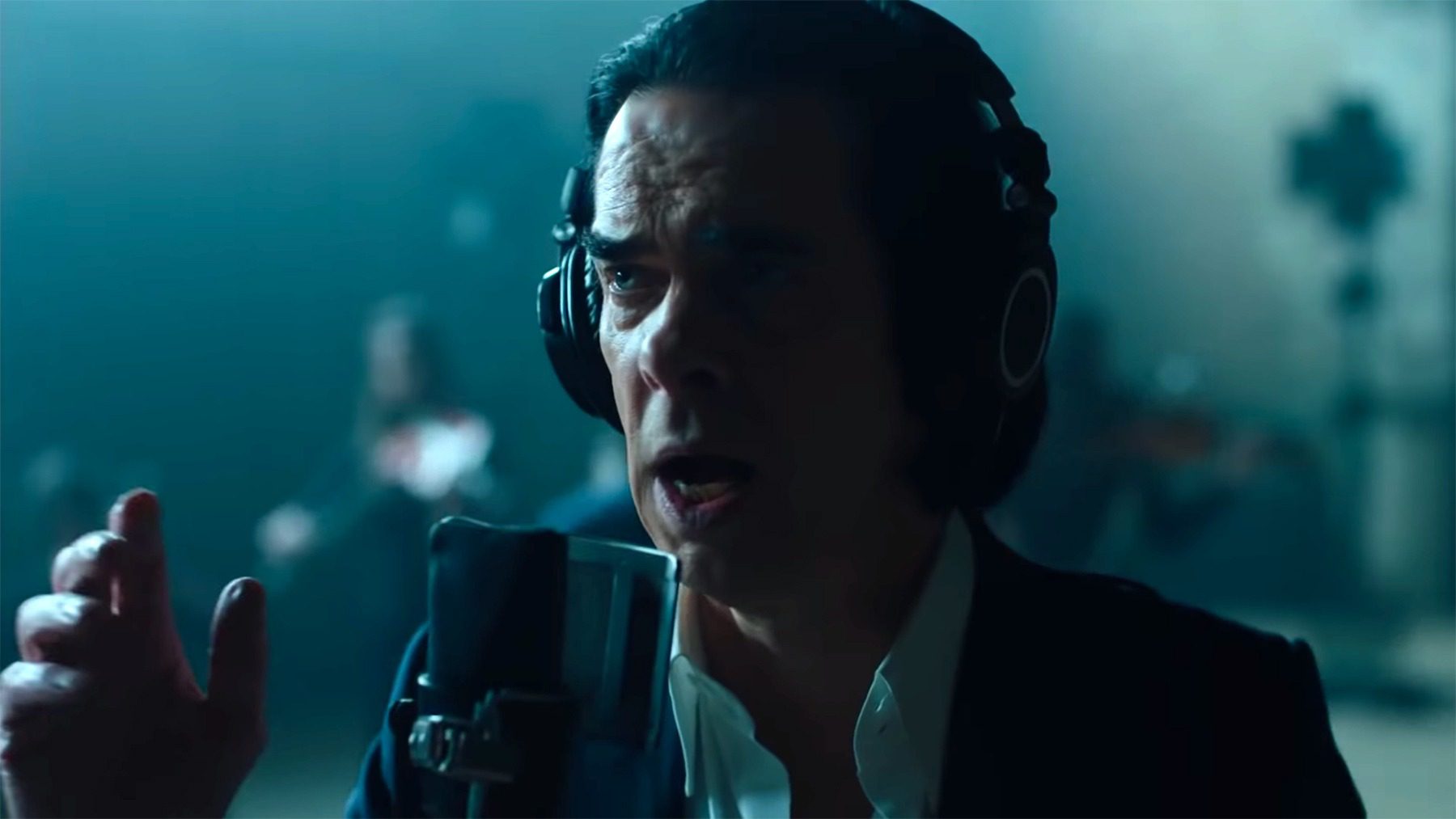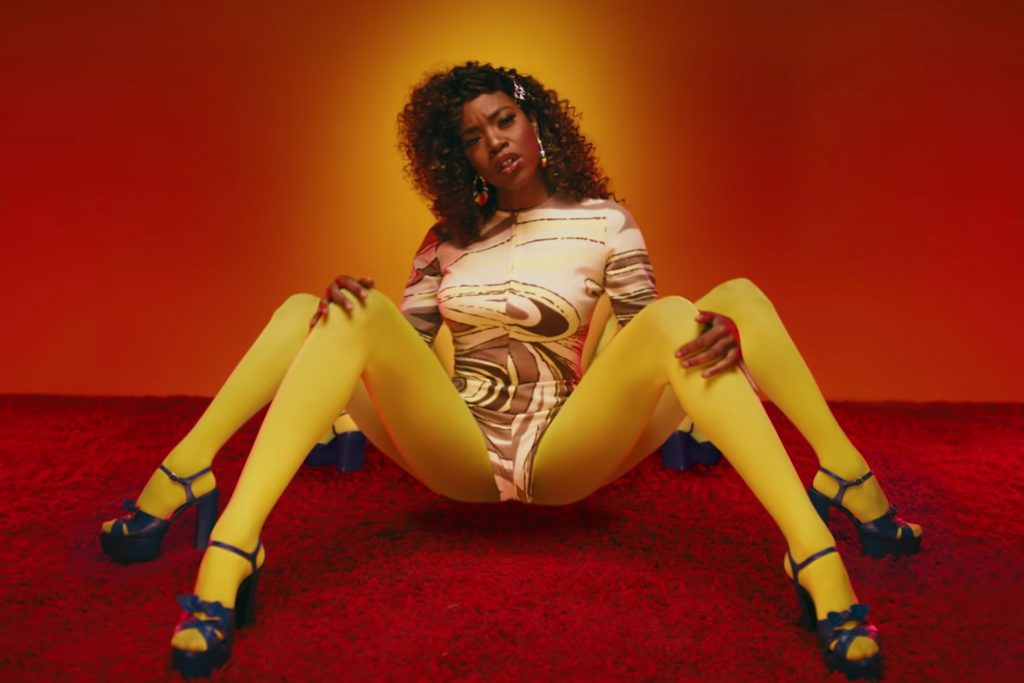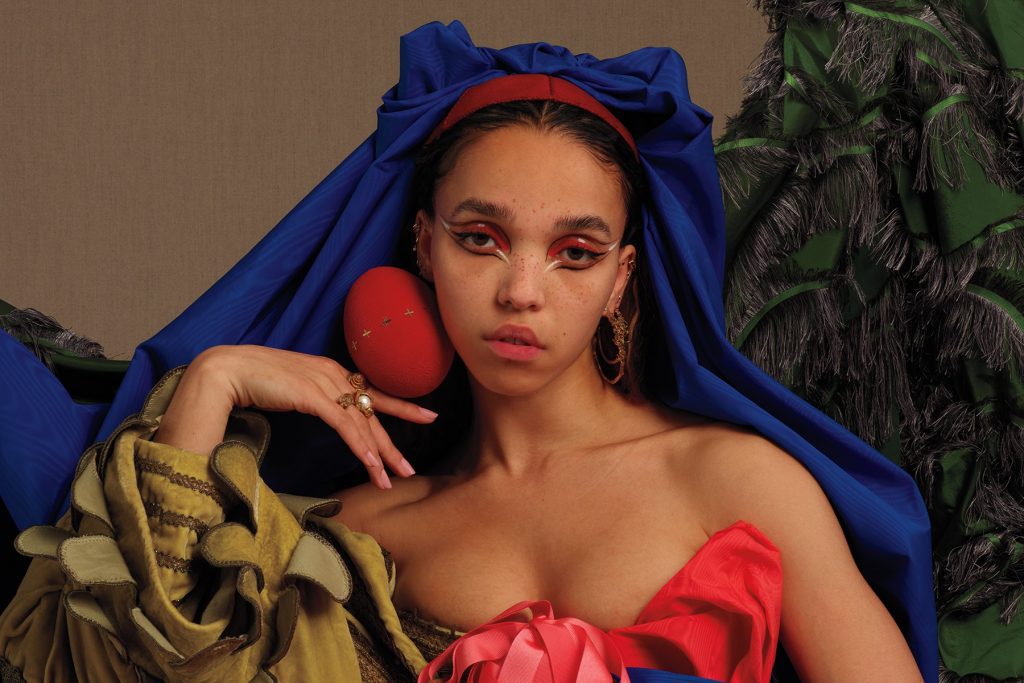
FKA Twigs on Strength, Vulnerability, and Imagining New Worlds
For our 2021 Grammy preview issue, we asked a series of likely contenders for next year’s awards to reflect on their past experiences at the ceremony, look ahead to the future, and discuss the albums and singles that could earn them a statue come January.
Sign up to receive your free exclusive Grammy Preview magazine for next year
FKA Twigs made a splash six years ago with her debut album, LP1, setting the bar for electronic pop with a fully realized vision that combined music, dance, and enigmatic visuals. Her follow-up, Magdalene, aimed even higher, placing the story of Mary Magdalene against the backdrop of her own personal life. The album, released last fall, rendered FKA Twigs as a more capable and self-assured artist; what’s more, it gained her a whole new audience with its top-tier collaborators (Future, Skrillex, Nicolas Jaar), a highly involved stage show, and a 2020 Grammy nomination for the music video for “Cellophane.”
“When I first started making the album, I was in such a vulnerable place,” says the singer, 32, who underwent surgery for uterine fibroids in 2018. “I was going through a lot in my personal life. It was a real moment of growth for me as a young woman, and I felt very fragile. But then, by the time the album was finished, I gained a lot of momentum and strength.”
blogherads.adq.push(function () {
blogherads
.defineSlot( ‘medrec’, ‘gpt-dsk-tab-article-inbody1-uid0’ )
.setTargeting( ‘pos’, [“mid-article”,”mid”,”in-article1″,”mid-article1″] )
.setSubAdUnitPath(“music//article//inbody1”)
.addSize([[300,250],[620,350],[2,2],[3,3],[2,4],[4,2]])
;
});
You had to cancel part of your Magdalene tour due to the pandemic. How disappointed were you?
The most difficult part is not being able to fully realize the live show. I feel the music very deeply, but there are so many other facets after the music — the movement and dance and martial-arts elements to what I do. So I don’t think I was able to fully realize the glory that Magdalene should have had. But Mary Magdalene never got to fulfill her full glory. Maybe there’s some sort of meaning to it, some sort of prophecy or a reflection of that.
When I saw the show in New York in the spring of 2019, the theatrical elements blew me away. What do you learn about the music when you’re performing it in such a high-production stage show, versus in the studio?
Something like “Cellophane” or “Mirrored Heart” is such a personal song, and I realized, when I’m onstage, it’s like giving it up to the audience. It’s a really humbling and beautiful process — at one point [with those songs], I felt like, “Only I’ve ever felt like that, surely, ever in the world.” But when you realize that you’re connecting with thousands of people at that moment, you’re sharing an emotion and sharing a message, and the connection feels so real. It doesn’t belong to me anymore. It belongs to everybody in the audience, for everybody that enjoys listening to the song. That’s when I always know it’s done: when other people are singing back or crying my lyrics to me.
You’ve spoken a lot about the inspiration for this album, Mary Magdalene, and how her image has been distorted throughout history. Was your goal to revise her historical record?
I wasn’t really trying to revise or correct it. It was more that I’ve felt, at times in my life, that I shared a life with her. This was more to form a connection with that story and to acknowledge her. We won’t ever know the truth of who she was, or what she did, and what her true relationship was with Jesus, or whether she was a sex worker. In many ways, it feels irrelevant.
When you were recovering from your surgery and doing all this strenuous physical training at the same time, was that part of the connection you felt?
It may be deeper than that. I had thought about her before, many years ago. She was such an incredible woman in her own right, but then was always being tied to a man, a small part of Jesus’ story. I have felt like that for a while, just kind of being the partner of a lot of my boyfriends. I had often felt like I was somebody’s girlfriend.
blogherads.adq.push(function () {
blogherads
.defineSlot( ‘medrec’, ‘gpt-dsk-tab-article-inbody2-uid1’ )
.setTargeting( ‘pos’, [“mid-article2″,”mid”,”in-article2″,”mid-article”] )
.setSubAdUnitPath(“music//article//inbody2”)
.addSize([[300,250],[300,251],[620,350],[2,4],[4,2]])
;
});
A lot of my life, it’s seemed like I’m OK with that, because I’ve been very quiet, so I can kind of get into that role. Then it became frustrating when I was working really hard as an artist, but no matter what I did, it always felt like there was somebody else’s name, that I had to be validated by a man. I’m not a loud person, but I guess it came out in my work. It was something that my subconscious was still coming to terms with: how the patriarchy does still rule over the matriarchy, even though times are changing. In many ways, I was still falling victim to the age-old dynamic between man and woman.
Or something like the Madonna-whore complex, which you’ve also spoken about.
Exactly. The patriarchy can’t see a woman as the virgin and the whore at the same time — it’s like a woman either has to be innocent and virginal and wifey material, and soft and open and serving, or they have to be sexual and sensual and in control, and exacting control of their sexuality, like the scarlet woman or the temptress. Coming towards my late twenties, I was able to embrace both parts of myself. That’s where I felt most confident, and I discovered new sides of myself, realizing that I could do both.
You were nominated for one Grammy award before this, for the music video for “Cellophane.” Were you expecting that video to get recognized?
No. When it comes to awards ceremonies, I’m always so grateful to be involved in them, whether they’re celebrating independent artists or something like the Grammys, that are reaching predominantly major labels and artists. I know that for some artists, it’s the end-all, be-all. [For me], it’s an incredible opportunity and surprise.
We’ve been talking a lot about the role that visual accompaniment and performance play in your music. Where do music videos fit into that equation?
It’s a big part of creating a world. Being a music artist, there’s a huge responsibility to be able to tell the whole story — through voice, through movement, through fashion, through visual pictures. To me, every single thing is so important: from the picture that announces the album to the album cover to the artwork to the video. It’s all telling that one big story. I like world building. My favorite art creates a whole world, where you scratch at the surface and it just gets deeper and deeper and deeper and deeper. That’s what I think an incredible music artist is to me — you scratch away, and you’re just going to fall forever.
blogherads.adq.push(function () {
blogherads
.defineSlot( ‘medrec’, ‘gpt-dsk-tab-inbodyX-uid2’ )
.setTargeting( ‘pos’, [“mid”,”mid-articleX”,”in-articleX”,”mid-article”] )
.setSubAdUnitPath(“music//article//inbodyX”)
.addSize([[300,250],[300,251],[3,3],[620,350]])
.setLazyLoadMultiplier(2)
;
});
